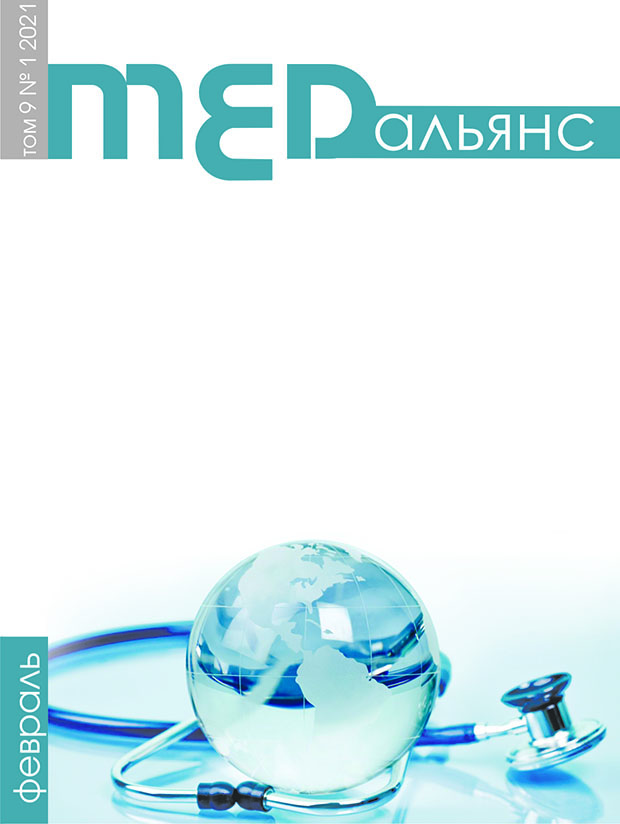Abstract
The aim of the study was to evaluate the clinical and lab-oratory parameters of the effectiveness of low-dose glucocorticoid therapy in the complex treatment of patients with lung disease caused by a new coronavirus infection (COVID-19).
Methods. The study included 40 hospitalized patients aged 37 to 68 years (mean age 52.2 years) with a confirmed diagnosis of medium severe to severe COVID- 19 pneumonia and CT-2 or CT-3 lung tissue involvement. All patients received standard therapy. Patients were randomized into two groups: the main group (n=20) and the control group (n=20). The main group additionally received MPS, according to the protocol: 4 mg tablets, 7 tablets per day, divided into 2 doses (4 tablets in the morning and 3 at lunchtime) in the course of 10 days. On admission to hospital, all patients demonstrated clinical symptoms of the disease, fever and decline in oxygen saturation. Based on the dynamics of clinical, radiological, and la boratory parameters, the additional effectiveness of oral glucocorticoids in the pathogenetic therapy of COVID-19 in comparison with control group was assessed.
Results. According to laboratory test results, the screened patients on hospital admission had an increased level of acute phase indicators and proinflammatory cytokines. Correlation analysis revealed the credible link between the volume of lung involvement (based on CT-scans), oxygen saturation, body mass index (BMI), and interleukin-10 levels (anti-inflammatory cytokine activation marker). Credible correlation between concentration of acute-phase parameters and proinflammatory cytokines (IL-1, IL-6) in blood was detected. The use of methylprednisolone in the comprehensive treatment of patients with severe pneumonia associated with COVID-19 has been accompanied by reliable increase in ferritin, C-reactive protein, and interleukin-1, interleu-kin-6, interleukin-10. Less time was needed for symptom resolution and recovery of oxygen saturation in patients who took methylprednisolone. Meanwhile, a timeframe for reaching positive CT dynamics and the total duration of treatment hadn’t changed significantly.
Conclusion. Prescribing cycles of oral glucocorticoid therapy helps to reduce proinflammatory cytokines in blood and accelerate oxygen saturation recovery, however, it does not influence the duration of hospitalization and the time frame of resolution of inflammatory changes in lungs du ring the period of hospitalization.

